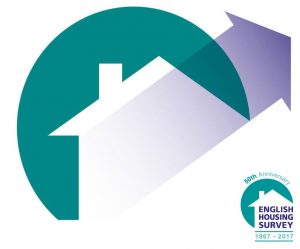5 things Sheffield’s student HMO landlords should consider this summer

1. Security No one likes to think too much about their property being burgled. As unpleasant a thought as it may be, your property’s security should always be reassessed each summer. Whilst Sheffield has seen a reduction in burglaries, reported cases remain high compared to similar demographic areas nationwide. In Broomhill, a thoroughly student heavy… Read more
The post 5 things Sheffield’s student HMO landlords should consider this summer appeared first on Property118.com.
View Full Article: 5 things Sheffield’s student HMO landlords should consider this summer
RLA welcomes digital tax changes
The RLA, today, welcomes the confirmation that only those landlords with a turnover above £85,000 will be expected to keep digital tax records as part of making tax digital. The Treasury;s announcement mirrors the calls that we made in our submission on the consultation introducing the initiative, and this reflects the concerns Douglas Haig, RLA […]
The post RLA welcomes digital tax changes appeared first on RLA Campaigns and News Centre.
View Full Article: RLA welcomes digital tax changes
Landlords welcome re-think on Digital Tax Changes
Landlords are today welcoming confirmation that only those landlords with a turnover above £85,000 will be expected to keep digital tax records.
The Treasury’s announcement mirrors the calls that were made by the Residential Landlords Association (RLA) in its submission on the consultation introducing the initiative, and reflects concerns expressed in oral evidence the RLA provided to a House of Lords Committee.
Under a new timetable to implement the change, only landlords and businesses with a turnover above the VAT threshold (currently £85,000) will have to keep digital records and only for VAT purposes and they will only need to do so from 2019.
Ministers had previously said it would apply to those with turnover above £10,000. Businesses and landlords will also not be asked to keep digital records, or to update HMRC quarterly, for other taxes until at least 2020.
RLA Policy Manager, John Stewart, commented:
“The RLA has long called for an increase in the threshold at which digital tax records will be required, and for more time to enable landlords to properly implement this radical change.
“Whilst we support efforts to improve the efficiency of the system, faced with unhelpful changes to the way they will be taxed, the last thing landlords needed was an imminent change to the way they keep their records.
“The Treasury has made the right decision in giving landlords more time to prepare for the policy, where is applies to them, and we welcome the Government listening and responding so positively to our concerns.”
The RLA represents 48,000 private sector residential landlords in England and Wales.
Douglas Haig, the RLA’s Vice Chairman, gave evidence to the House of Lords Economic Affairs sub-committee investigating Making Tax Digital on 20th February 2017. The transcript can be found here
The post Landlords welcome re-think on Digital Tax Changes appeared first on LandlordZONE.
View Full Article: Landlords welcome re-think on Digital Tax Changes
English Housing Survey – Private Rented Sector 2015-2016 released

The English Housing Survey on the Private Rented Sector (PRS) 2015-2016 was released yesterday by the Department for Communities and Local Government. Click Here to see the full report Despite popular propaganda most private renters move, because they want to with only one in ten asked to leave by their landlord. 73% of private renters… Read more
The post English Housing Survey – Private Rented Sector 2015-2016 released appeared first on Property118.com.
View Full Article: English Housing Survey – Private Rented Sector 2015-2016 released
How to deal with incorrect licence advice from agent?

My wife and I are expats who have been renting our property through an agent for 5 years. We currently own a four bedroom property (for bedrooms including a loft extensions). In October 2016, the previous tenants move out and the current occupants moved in. We were sent the documents with a recommendation that we… Read more
The post How to deal with incorrect licence advice from agent? appeared first on Property118.com.
View Full Article: How to deal with incorrect licence advice from agent?
Landlady fined for Rent Smart Wales offences
Rent Smart Wales:
A Cardiff landlady who ignored the Rent Smart Wales scheme faces a bill of more than £3,500 for non-compliance.
Landlord Shelley Bailey of Eastwood Park, Wotton-Under-Edge, Gloucestershire was prosecuted under the Housing (Wales) Act 2014 for breaking the law requiring all private landlords with properties in Wales to register and all self-managing landlords and agents to become trained and licensed.
Acting on reports about her failure to comply, Rent Smart Wales officers attempted to contact Ms Bailey to inform her of the requirement to register herself and her seven Cardiff properties and, as a self-managing landlord to complete training and become licensed.
Ms Bailey failed to take any steps to comply and was issued with a Fixed Penalty Notice of £150 in April but her failure to pay led to the prosecution by Cardiff Council, who operate the scheme on behalf of Welsh Government.
She was found guilty of 21 offences in her absence at Cardiff Magistrates Court, fined £3,580 and ordered to pay £457 costs.
Cabinet Member for Housing and Communities, Cllr Lynda Thorne, said: “Rent Smart Wales was established to drive up standards in the private rented sector, protecting tenants and ensuring landlords and agents are fit and proper and aware of their rights and responsibilities.
“Landlords and agents had a full year to comply before the November 2016 deadline when enforcement powers became active but despite this, some landlords believe they can continue to flout the law and side-step complying.
“This case shows that we are actively seeking out those who fail to comply and are working with Local Authorities across Wales and others to identify cases of non-compliance. We’re keen to hear from tenants and neighbours who have concerns about unregistered landlords and properties.
“As we see with this prosecution, the sanctions for failing to comply with Rent Smart Wales are serious and the fine imposed reflects the complete disregard for the scheme shown by the landlord. It should be a stark warning to all those who are yet to comply and I encourage any unregistered or unlicensed landlords or agents not to delay. Come forward and comply without delay.”
Rent Smart Wales is a service hosted by Cardiff Council but ensures compliance with the legislation in partnership with 22 Welsh local authorities. The Welsh Ministers designated Cardiff Council as the Licensing Authority for the whole of Wales in 2015.
Further information about Rent Smart Wales can be found here: www.rentsmart.gov.wales
Facebook: https://www.facebook.com/RDC.RSW/
Twitter: https://twitter.com/RentSmartWales
Helpline: 03000 133344
The post Landlady fined for Rent Smart Wales offences appeared first on LandlordZONE.
View Full Article: Landlady fined for Rent Smart Wales offences
Weakened government u-turns on digital tax return plans

Commenting on the Government’s decision to U-turn on its controversial Making Tax Digital Programme, Richard Lambert, Chief Executive Officer at the National Landlords Association (NLA), said: “We are pleased that the Government has finally listened to the concerns raised by the NLA on behalf of landlords who would have been dragged into a system of… Read more
The post Weakened government u-turns on digital tax return plans appeared first on Property118.com.
View Full Article: Weakened government u-turns on digital tax return plans
Overall Homeownership Rate Declining, Census Reveals
Home Ownership & Renting:
“The… dream of homeownership is alive and well, despite the growing housing affordability crisis, according to the latest 2016 census data. However, the nation’s strong overall homeownership rate is slowly declining.”
A clear picture of the UK housing market, where renting is growing and home ownership is in decline – not at all, this is a piece from yourinvestmentpropertymag Australia!
We tend to think that the so called housing crisis is unique to Britain, but this is far from the case. Across the Anglosphere – the US, Canada, Australian and New Zealand the same picture emerges.
Basically, ultra-low interest rates around the globe have pushed up asset prices to a point where people on wages that have be relatively static for many years, simply can’t afford to buy. With property price-to-earnings ratios across the world at historic highs, there are few signs that this will change until interest rates rise and prices come down, if that ever happens.
The Australian report says:
“Comparing homeownership rates since the 2011 census, it’s pretty clear there’s a slow but steady decline in overall homeownership rates. It’s down by 2.9%, from 64.9% of all Australian households in 2006 to 62% in 2016.”
“One aspect of housing affordability that is being masked by these numbers is the ability to purchase a home based on age and income. Recent studies indicate that aspiring first-home buyers try various means to enter the property market, including taking on very high mortgage debt and moving to outer urban locations. Some even delay having children.
“The number of renters is on the rise. Last year, over two million Australian households rented privately, either from real estate agents or private landlords. The growth of the private rental sector highlights the high costs of home purchase. However, many households that rent complain of an overall lack of security and poor control over rental increases.”
All sound very familiar? You bet it does.
The post Overall Homeownership Rate Declining, Census Reveals appeared first on LandlordZONE.
View Full Article: Overall Homeownership Rate Declining, Census Reveals
How Landlords Can Save Money By Choosing A Cleaning Company Directly
As recent tax changes mean landlords may lose out on profit, how can you keep the costs of renting out properties down and ensure you maximise value and profits?
As a landlord, it’s your responsibility to make sure that your property is up to the best possible standard when new tenants move in. Having a well-finished property not only allows you to get the best possible price from your tenants, but it also builds a level of trust within the renters. With a clean property, you set an expectation that residents must leave it in the same state that they found it. If you take care of the property, there is an unwritten understanding that they will look after the property too.
One way of ensuring a beautifully presented property is by hiring professional cleaners for a spot of end of tenancy cleaning. You can either choose the cleaning company directly or use a letting agent to organise a cleaning service.
Saving time?
Is time or cost worth more?
Many landlords choose to use letting agents to manage their properties for convenience. Letting agents will do all the legwork, but this comes at a premium. However, what most landlords assume is that by using a letting agent or management service that you don’t have control in regards to the cost of services needed.
While a letting agent may be useful in marketing your property and completing the legal necessities, you do not have to use them for every aspect. For aspects you are confident with, you can take control and save a considerable amount of money.
Cleaning and repairing are two aspects of managing a property that can be easily administered by a landlord, particularly with the right know-how. Letting agents capitalise on homeowners lack of confidence and lack of time leading to unnecessary costs, what’s worse, some agents will even exploit this to rip you off.
The problem for most landlords in the UK is that there’s no standard service level agreement between a letting agent and the owner. This means that the level of service and costs will vary from one letting agent to another. Many landlords, especially those new to letting agent, will often end paying more than needed. This is why choosing a cleaning company yourself is a better choice than leaving it to your letting agent.
Is the end of tenancy cleaning that important?
To succeed at landlording, you need to know the facts.
First, here is what you should be aware of the end of tenancy cleaning. Tenants are fully in charge of daily maintenance and cleaning of the property. There are often held liable in case they let the lack of proper cleaning cause the spread of health diseases, mould and pest infestation. Getting rid of such diseases, fungus and parasites are costly, and renters are held accountable; not landlords.
The driveway, patio, and the garden are assigned to the tenant as well in most instances. So when doing a check in inspection confirm if these areas are under the tenant’s responsibility.
In shared buildings, cleaning duties for communal areas are often the responsibility of the landlord. Also, some specialised cleaning services are considered the responsibility of the owner. For instance, gutter cleaning should be the owner’s care.
Cleaning is the responsibility of the tenants, and the responsibility states that when renters return the keys to the landlord, the property should be as clean as when they moved in.
End of tenancy cleaning ensures a high level clean that sets a precedent for the next tenants and ensures that the level of cleaning expected never slips below an excellent standard. While a professional clean may seem expensive, consider it insurance, making sure your tenants keep it at that level and reducing the risk of expensive cleaning and repairs later on.
How much does cleaning cost?
Sometimes, paying for a cleaning service at the end of the tenancy is deemed unfair by tenants. Especially if it is unclear or vague about the extent of cleaning involved, or the basis on which the cleaning money will be demanded. Such charges are fair if they are limited only to a reasonable amount for failing to maintain the property properly.
Importance of the end of tenancy cleaning
According to the Deposit Protection Scheme, around 56% of deposit disputes are caused by insufficient cleaning. Inflicted damage is second at 43%. In most cases, if a tenant has not performed the end of tenancy cleaning before moving out, the landlord will hire a cleaning company, and the bill will be discounted from the tenant’s deposit. Unfortunately for landlords, the Tenancy Deposit Scheme usually favours tenants over landlords and proving that the clean is not up to standard takes a tremendous amount of proof, leaving the tenancy on a sour note.
If the cleaning condition is not disputed by the tenant, landlords can instruct a professional clean and claim the money from the deposit. However, a landlord should not deduct more than the cost of the cleaning service, and a receipt will be needed as proof that the cleaning has been paid. A tenant should request to see this approving the deposit deduction.
A tenant may also choose to pay for a professional cleaner themselves, for peace of mind that they won’t be charged over the odds, or be charged an administration fee.
Some landlords hire the end of tenancy cleaning companies before the tenants move in. This is often to set a high standard that will be expected when tenants are moving out.
How letting agents scam landlords
According to the firm, Aspect, the practice by which letting agents pass over the actual costs to landlords but then, without the landlord being informed, charge the cleaning company a commission, is a big letting agent scam that should be exposed. The firm says that the government move to make the letting agents join an ombudsman scheme won’t protect the landlords from rip-offs.
Furthermore, some agents charge a lot of commission when they’ve hit the target on the total amount they’ve invoiced the landlords.
The National Landlords Association states that a ‘typical’ property should have a budget of around 10% of their rental income on maintenance services such as cleaning. But according to them, some landlords are paying more than they need for these. Agents often apply markups of approximately
20%. However, many landlords are paying higher hidden costs on the cleaning services done on the properties.
Some industry professionals used anonymous shoppers to identify a particular sinister price gouging operation which saw a good number of letting agents saying that the contractors paid back 60% of the fee, unknown to the landlord. The contractors usually oblige since they expect to get more work from that agency. However, for landlords, this means that the prices are incredibly high and they’re likely to receive lower quality work. This also means that more money ends in the agent’s pocket. For instance, a landlord paying £120 for a repair job could be paying £90 to the letting agent for making sure the problem is fixed, and the contractor gets £30.
When an agent calls for a cleaning service, always consider these three thoughts:
- Understand what you are paying for
- Know that you are not legally obligated to address all repair, cleaning, or maintenance issues
- Don’t be a ‘Yes Man.’
Understanding letting agent costs
To avoid unnecessary costs, as a landlord, you should be fully aware of the fees incurred for hiring cleaning services in the UK and using letting agents to do so and the amount of cash you can save by going directly. To understand these charges and fees; shop around. Most letting agents will have their prices available to see, make sure you know the cost and how they compare to others on the market.
We also understand how the costs of cleaning can vary considerably across the UK, so if you own lots of properties across the UK, our service means you can find a local business to your property without spending the excess on the national firms.
You can compare quotes on Service Octopus here.
Compare Quotes on Service Octopus
At Service Octopus, we understand how important it is for landlords to save money and still receive a high-quality service. We also understand that you don’t have time to trawl through cleaning companies and waste time with ringing or emailing for quotes. You need answers right away to make managing the cleaning a breeze.

It’s simple
Just input the service you require, the date and location and Service Octopus will instantly bring up the cleaning companies available to you with their prices listed. You decide which company you’d like to do and book.
No more expensive letting agent markups.
No more lengthy phone calls and website trawling.
Just hassle-free price comparison with an easy and secure booking service.
Get back to what you enjoy and let your properties bring you the maximum profit possible.
The post How Landlords Can Save Money By Choosing A Cleaning Company Directly appeared first on LandlordZONE.
View Full Article: How Landlords Can Save Money By Choosing A Cleaning Company Directly
Categories
- Landlords (19)
- Real Estate (9)
- Renewables & Green Issues (1)
- Rental Property Investment (1)
- Tenants (21)
- Uncategorized (12,496)
Archives
- February 2026 (48)
- January 2026 (52)
- December 2025 (62)
- August 2025 (51)
- July 2025 (51)
- June 2025 (49)
- May 2025 (50)
- April 2025 (48)
- March 2025 (54)
- February 2025 (51)
- January 2025 (52)
- December 2024 (55)
- November 2024 (64)
- October 2024 (82)
- September 2024 (69)
- August 2024 (55)
- July 2024 (64)
- June 2024 (54)
- May 2024 (73)
- April 2024 (59)
- March 2024 (49)
- February 2024 (57)
- January 2024 (58)
- December 2023 (56)
- November 2023 (59)
- October 2023 (67)
- September 2023 (136)
- August 2023 (131)
- July 2023 (129)
- June 2023 (128)
- May 2023 (140)
- April 2023 (121)
- March 2023 (168)
- February 2023 (155)
- January 2023 (152)
- December 2022 (136)
- November 2022 (158)
- October 2022 (146)
- September 2022 (148)
- August 2022 (169)
- July 2022 (124)
- June 2022 (124)
- May 2022 (130)
- April 2022 (116)
- March 2022 (155)
- February 2022 (124)
- January 2022 (120)
- December 2021 (117)
- November 2021 (139)
- October 2021 (130)
- September 2021 (138)
- August 2021 (110)
- July 2021 (110)
- June 2021 (60)
- May 2021 (127)
- April 2021 (122)
- March 2021 (156)
- February 2021 (154)
- January 2021 (133)
- December 2020 (126)
- November 2020 (159)
- October 2020 (169)
- September 2020 (181)
- August 2020 (147)
- July 2020 (172)
- June 2020 (158)
- May 2020 (177)
- April 2020 (188)
- March 2020 (234)
- February 2020 (212)
- January 2020 (164)
- December 2019 (107)
- November 2019 (131)
- October 2019 (145)
- September 2019 (123)
- August 2019 (112)
- July 2019 (93)
- June 2019 (82)
- May 2019 (94)
- April 2019 (88)
- March 2019 (78)
- February 2019 (77)
- January 2019 (71)
- December 2018 (37)
- November 2018 (85)
- October 2018 (108)
- September 2018 (110)
- August 2018 (135)
- July 2018 (140)
- June 2018 (118)
- May 2018 (113)
- April 2018 (64)
- March 2018 (96)
- February 2018 (82)
- January 2018 (92)
- December 2017 (62)
- November 2017 (100)
- October 2017 (105)
- September 2017 (97)
- August 2017 (101)
- July 2017 (104)
- June 2017 (155)
- May 2017 (135)
- April 2017 (113)
- March 2017 (138)
- February 2017 (150)
- January 2017 (127)
- December 2016 (90)
- November 2016 (135)
- October 2016 (149)
- September 2016 (135)
- August 2016 (48)
- July 2016 (52)
- June 2016 (54)
- May 2016 (52)
- April 2016 (24)
- October 2014 (8)
- April 2012 (2)
- December 2011 (2)
- November 2011 (10)
- October 2011 (9)
- September 2011 (9)
- August 2011 (3)
Calendar
Recent Posts
- Tenancy Deposit Scheme claims it is helping landlords and tenants
- Marriage, civil partnerships and why landlords should not ignore the obvious
- Renters turn to commuter towns as demand soars
- Council unveils consultation on HMO planning rules
- Reform UK vow to scrap the Renters’ Rights Act

 admin
admin 
